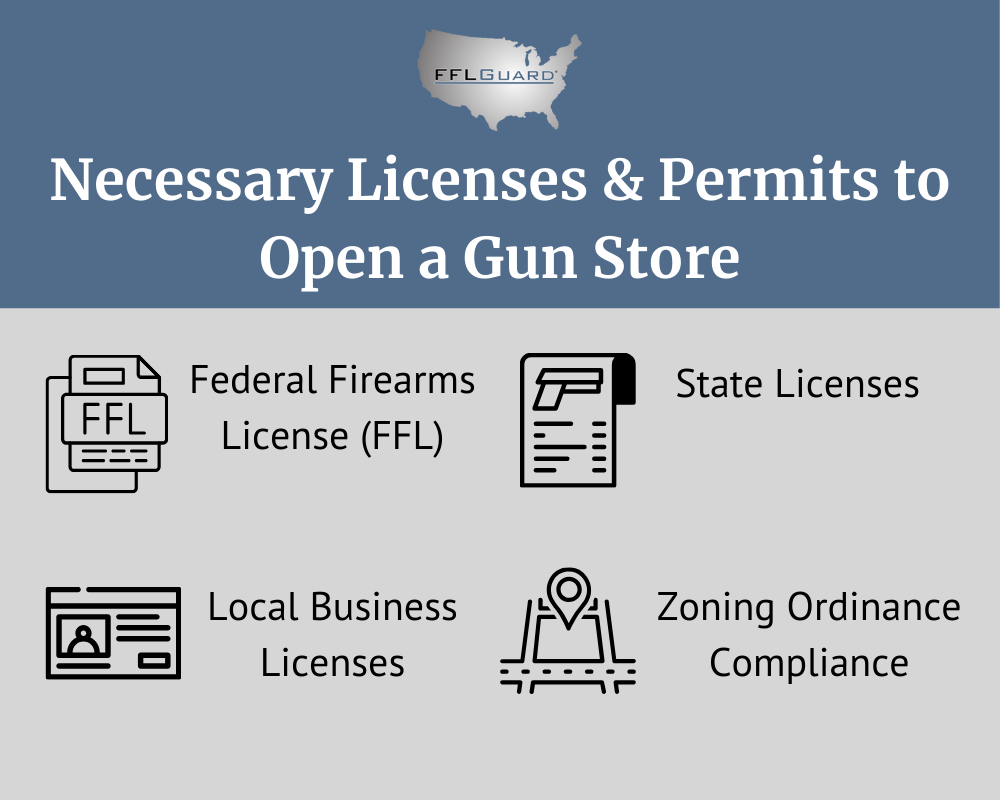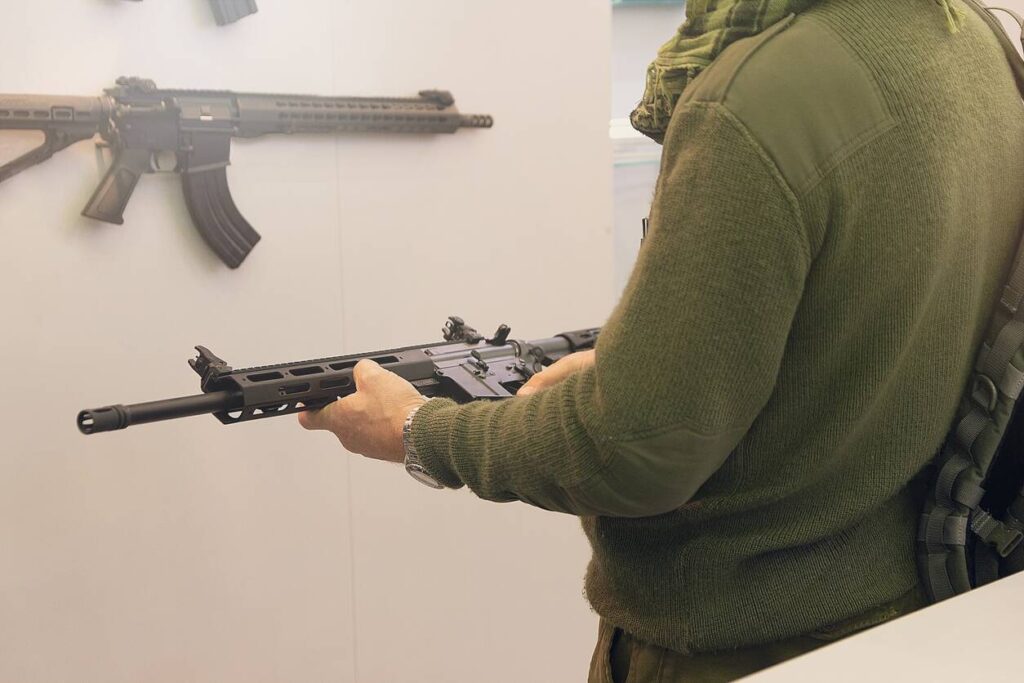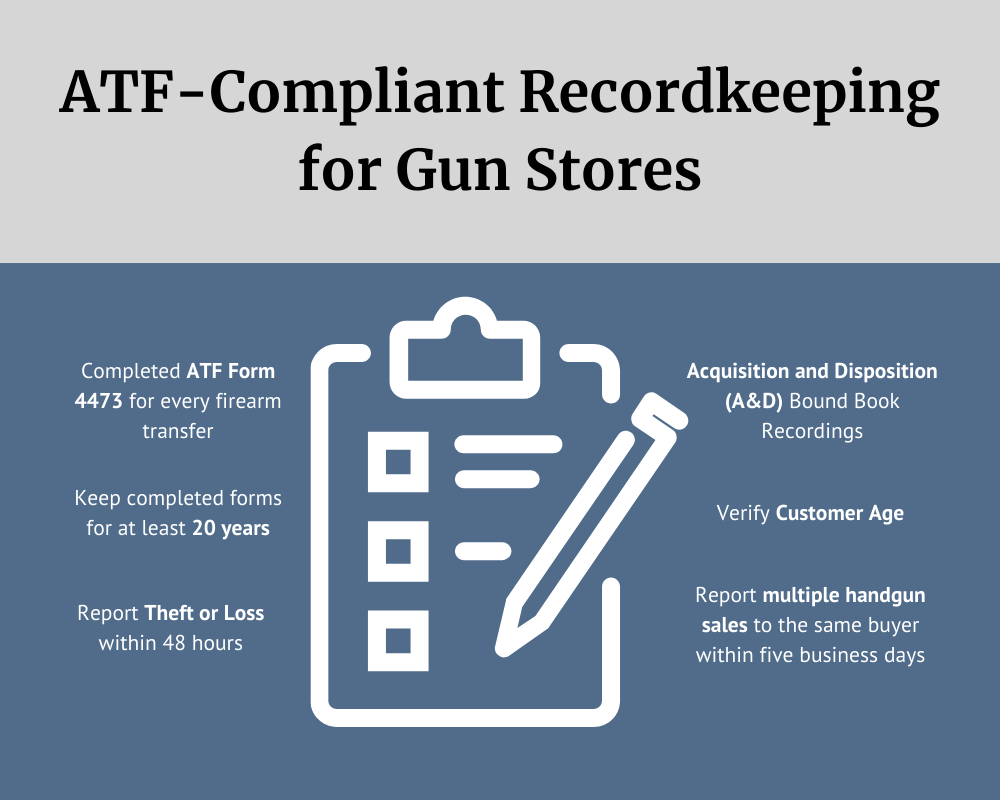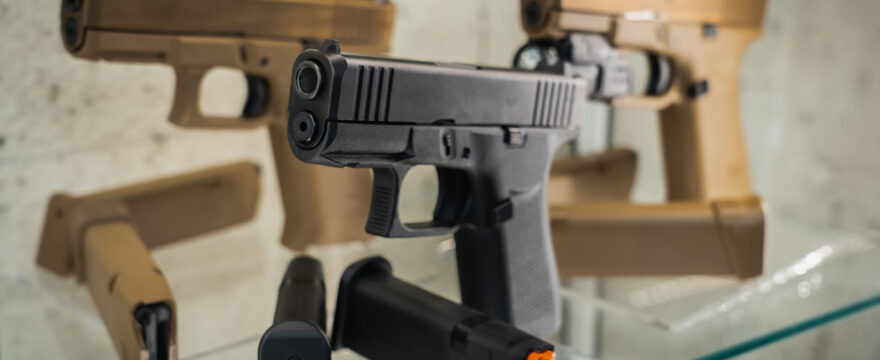Opening a gun store represents both a significant business opportunity and a considerable responsibility. The firearms retail industry is heavily regulated at federal, state, and local levels, requiring meticulous attention to legal compliance, proper licensing, and comprehensive security measures. Despite these challenges, the firearm business continues to show strong demand across the United States, with over 16 million background checks for gun purchases conducted annually in recent years.
Prospective owners should honestly assess whether they possess the discipline required to maintain the detailed recordkeeping that federal agencies mandate and the commitment to prioritize safety and legal compliance above all other business considerations.
Step 1: Research and Plan Your Gun Store Business
The foundation of any successful gun store begins with thorough research and careful planning. The firearms retail landscape differs significantly from standard retail operations due to its unique regulatory environment and specialized customer base.
Start by examining the current firearms market in your region. Identify potential customer demographics, competition, and unmet needs.
Your business model will significantly impact your startup costs and regulatory requirements. A traditional brick-and-mortar store offers the advantage of direct customer interaction but requires substantial investment in secure facilities. Online sales can reduce overhead but still require a physical location for processing transfers and maintaining inventory. Many successful retailers now implement an omnichannel approach, maintaining both physical and online presence.
Typical startup costs for a gun shop include:
- Federal Firearms License (FFL) fees ($150-$3,000 depending on type)
- State and local licensing (varies widely by location)
- Security systems ($5,000-$20,000 for a comprehensive system)
- Initial inventory ($50,000-$150,000+)
- Point-of-sale systems and compliance software ($3,000-$10,000)
- Insurance premiums ($2,000-$10,000 annually)
- Commercial space leasing and build-out costs
Most firearms retailers operate as Limited Liability Companies (LLCs) due to the liability protection this structure provides while maintaining tax flexibility. However, consult with both a business attorney and an accountant familiar with the firearms industry before making this decision, as your specific circumstances might favor a different structure.

Step 2: Obtain the Necessary Licenses and Permits
Federal Firearms License (FFL)
The Federal Firearms License (FFL) issued by the Bureau of Alcohol, Tobacco, Firearms and Explosives (ATF) allows you to engage in the business of selling firearms and is non-negotiable for anyone planning to operate a gun store.
The ATF issues several types of FFLs, but most retail gun stores require a Type 01 license (Dealer in Firearms Other Than Destructive Devices). If you plan to sell NFA items like suppressors or short-barreled rifles, you’ll also need to become a Special Occupational Taxpayer (SOT).
The application process includes:
- Completing ATF Form 7 (Application for Federal Firearms License)
- Submitting fingerprints and photographs
- Paying the application fee ($200 for the first three years for a Type 01 FFL)
- Undergoing an in-person interview with an ATF Industry Operations Investigator
- Demonstrating compliance with state and local laws
- Passing a background check
During the interview, the ATF investigator will verify that your business location meets federal requirements and that you understand the responsibilities associated with an FFL. They will confirm that your business has proper security measures and that you’re prepared to maintain the required records.
State and Local Business Licenses
Beyond the federal requirements, you’ll need various state and local licenses to operate legally. These vary significantly by location but typically include:
- State firearms dealer license (required in many states)
- General business license
- Sales tax permit
- Employer Identification Number (EIN) from the IRS
- Local business permits
Some states like California, New York, and Massachusetts have particularly stringent additional requirements for gun dealers and impose waiting periods, specific storage requirements, or restrictions on certain firearms that are legal at the federal level. Research these requirements thoroughly and consider consulting with a firearms attorney familiar with your state’s regulations.
Zoning and Location Compliance
Many local municipalities restrict firearms businesses through zoning ordinances that prohibit gun stores near schools, parks, residential areas, or other locations.
Before signing a lease or purchasing property, verify that the location is zoned appropriately for firearms sales. This typically requires:
- Reviewing local zoning codes
- Meeting with local zoning officials
- Potentially applying for conditional use permits
- Attending public hearings if required by local ordinances
These restrictions can significantly limit available locations and increase costs, so address zoning concerns early in your planning process. In some jurisdictions, you may need to secure location approval before applying for your FFL.
Step 3: Set Up Your Business and Storefront
Store Layout and Security Measures
The ATF requires “secure gun storage or safety devices” for all firearms inventory, but specific security measures are largely left to the dealer’s discretion. However, your insurance provider will likely mandate comprehensive security systems.
Essential security elements include:
- Alarm systems with 24/7 monitoring
- Video surveillance covering all entrances, exits, and display areas
- Physical barriers (security gates, reinforced doors, smash-resistant display cases)
- Gun safes or vault rooms for overnight storage
- Cable locks or other securing devices for displayed firearms
- Controlled access points and visibility throughout the store

Inventory and Suppliers
Building relationships with distributors constitutes a critical early step. Establishing accounts with multiple distributors provides access to a wider inventory selection and competitive pricing.
The ATF requires meticulous tracking of all firearms that enter and leave your inventory. This necessitates an Acquisition and Disposition (A&D) book – either physical or electronic – that records details of every firearm transaction. Many stores now use specialized point-of-sale systems designed specifically for FFLs that integrate compliance features with inventory management.
FastBound offers A&D and 4473 bound book software that allows FFLs to easily remain in compliance with the ATF, federal regulations, and state and local laws. Prospective clients interested in FFLGuard’s Tier 2 Support plans are required to subscribe to FastBound before services begin..

Step 4: Compliance with Firearms Sales Regulations
ATF Compliance and Recordkeeping
The cornerstone of ATF compliance is proper recordkeeping. This includes:
- Maintaining an Acquisition and Disposition (A&D) book recording every firearm that enters or leaves your inventory
- Properly completing ATF Form 4473 for every firearm transfer
- Retaining completed forms for at least 20 years
- Reporting multiple handgun sales to the same buyer within five business days
- Reporting theft or loss of firearms within 48 hours
- Verifying the age of customers (21 for handguns, 18 for long guns under federal law)
The ATF conducts regular compliance inspections of FFL holders, typically once every few years but potentially more frequently for new licensees or those with previous violations. These inspections review your records and procedures to ensure compliance with federal regulations. Establishing organized systems from the beginning will make these inspections less stressful and reduce the risk of violations.
Background Checks and NICS Compliance
Every retail firearm sale requires a background check through the National Instant Criminal Background Check System (NICS), with few exceptions. As an FFL holder, you’ll establish an account with NICS to conduct these checks before transferring firearms to customers.
The background check process typically involves:
- Having the customer complete ATF Form 4473
- Verifying the customer’s identity with government-issued photo ID
- Contacting NICS by phone or online portal
- Receiving a “Proceed,” “Denied,” or “Delayed” response
- Documenting the NICS transaction number on the Form 4473
- Proceeding with or denying the sale based on the NICS determination
Some states operate their own background check systems that FFLs must use instead of or in addition to NICS.
Handling Gun Transfers and Online Sales
As an FFL holder, you can facilitate transfers of firearms purchased online or from out-of-state sources. These transfers must follow the same procedures as direct sales, including background checks and proper documentation.
Many successful gun stores now generate significant revenue from transfer fees charged for facilitating online purchases. This service can bring new customers into your store who may later return for direct purchases or additional services.
For firearms you ship to other FFLs, you must verify the receiving FFL’s license validity (typically by obtaining a copy of their license) and ship only to their licensed premises. Most common carriers have specific requirements for shipping firearms that you must follow.
Step 5: Managing Risks and Liability
Firearms Store Insurance
Specialized insurance for firearms retailers is essential but can be challenging to obtain. Work with insurance brokers who specialize in the firearms industry to secure appropriate coverage, including:
- General liability insurance
- Product liability coverage
- Property insurance with specific coverage for firearms inventory
- Loss prevention coverage
- Employee dishonesty coverage
- Coverage for ATF compliance violations
Expect to pay premium rates compared to other retail businesses due to the higher perceived risk associated with firearms sales.
Legal Responsibilities and Risk Mitigation
Beyond insurance, implement comprehensive risk management strategies:
- Develop detailed written policies and procedures for all aspects of your operation
- Train employees thoroughly on compliance requirements and documentation
- Conduct regular internal audits of your records and procedures
- Maintain relationships with firearms attorneys who can provide guidance
- Stay current with changing regulations through industry associations
The most successful firearms retailers combine strict compliance with exceptional customer service, positioning themselves as responsible community resources rather than merely product vendors. By understanding both the business and regulatory aspects of firearms retailing, you can build a sustainable business while promoting safe and responsible gun ownership.
FFLGuard’s Legal Support for FFLs
Directed by The Chiafullo Group, LLC, FFLGuard’s cooperative legal and compliance program has been safeguarding and educating FFLs in the United States since 2008. FFLGuard’s firearms-specific counsel, subject matter experts, and professionals across the country work to help FFLs preserve their licenses and remain in federal and state compliance. FFLGuard’s legal experts will guide you through the process of opening your gun store while meeting ATF compliance. Join FFLGuard to learn more about our service plans and Contact Us with any questions.

